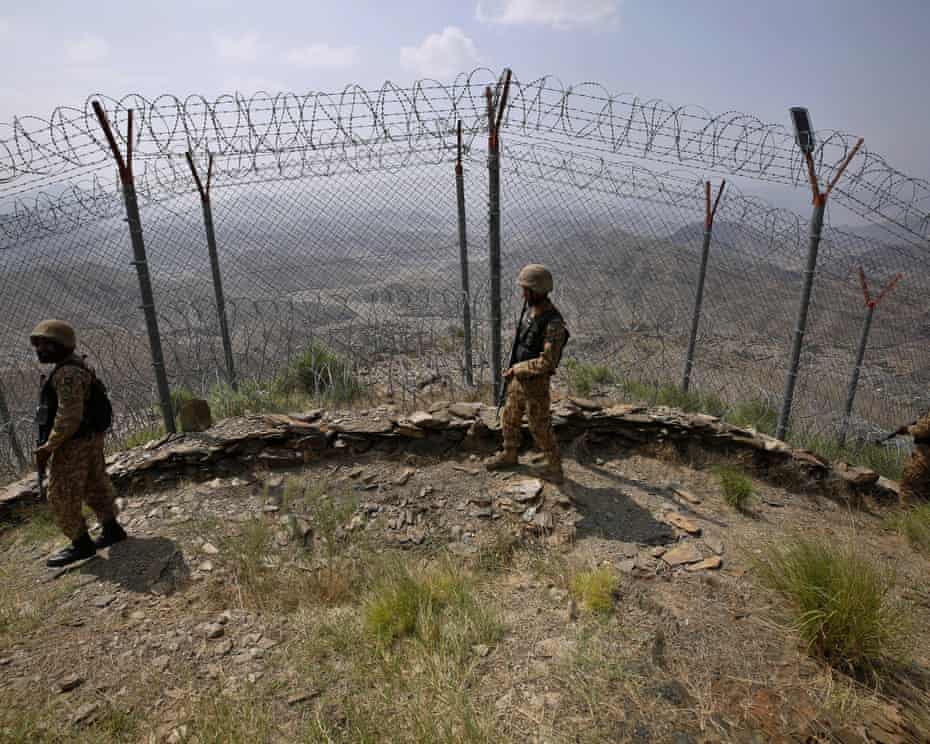Fierce fighting has erupted in Pakistan’s north-western border regions after security forces launched raids on two hideouts of the Pakistani Taliban, killing 12 soldiers and 35 militants, the military confirmed on Saturday.
The operations took place in Bajaur and South Waziristan, both districts in Khyber Pakhtunkhwa province, which borders Afghanistan and has long been a centre of militant activity.
According to the military, the first raid occurred in Bajaur, where 22 militants were killed during an intense exchange of fire. Hours later, a separate operation in South Waziristan resulted in the deaths of a further 13 militants. The clashes also claimed the lives of 12 Pakistani soldiers, making the incident one of the deadliest confrontations in recent months.
The military said the raids targeted members of Tehrik-e-Taliban Pakistan (TTP), a banned militant group responsible for a surge in attacks across the country in recent years. The TTP, which calls itself the world’s largest jihadist front, has claimed responsibility for numerous high-profile assaults, including the attempted assassination of Nobel laureate Malala Yousafzai in 2012, the killing of former prime minister Benazir Bhutto in 2007, and the failed Times Square bombing in New York in 2010.
Officials say the group has been emboldened since the Taliban takeover of Afghanistan in August 2021, which provided militants with a safe haven across the border. From there, they have been able to plan and launch attacks inside Pakistan. This development has strained relations between Islamabad and Kabul, with Pakistan repeatedly urging Afghanistan’s Taliban-led government to prevent its territory from being used for cross-border militancy.
In its statement, the Pakistani military called on Kabul “to uphold its responsibilities and deny use of its soil for terrorist activities against Pakistan”. It described the slain militants as “Khawarij” a term historically used to refer to a radical sect that emerged in the early years of Islam, and which the government now applies to the TTP.
The military also alleged that the militants were backed by India, though it provided no evidence to support the claim. Pakistan has long accused India of supporting the TTP and separatist movements in Balochistan, allegations that New Delhi has consistently denied. There was no immediate response from either the Taliban authorities in Kabul or the Indian government.
Saturday’s clashes highlight the ongoing security challenges facing Pakistan, particularly in Khyber Pakhtunkhwa province, where the TTP once held significant territory before being driven out by military operations. Despite repeated offensives, the group has maintained the ability to regroup and launch attacks, often targeting security forces and government installations.
Last month, the Pakistani military announced a “targeted operation” in Bajaur aimed at eliminating militant hideouts in the area. That campaign displaced tens of thousands of residents, many of whom have yet to return to their homes due to ongoing security concerns.
The latest violence underscores the growing threat posed by the TTP’s resurgence. Analysts say the group has benefited from the instability in Afghanistan, the porous nature of the border, and the complex tribal dynamics of the region.
The Pakistani government has vowed to continue its counter-terrorism operations, but the high casualty toll among its soldiers in Saturday’s raids is likely to intensify public debate over the effectiveness of its strategy.
With no immediate sign of a breakthrough in talks between Islamabad and Kabul over cross-border militancy, and with the TTP showing no indication of halting its campaign, the conflict in Pakistan’s north-west appears set to continue.
The military has not disclosed whether further operations are planned in the coming days, but security has been tightened in both Bajaur and South Waziristan as authorities brace for possible retaliatory attacks.



